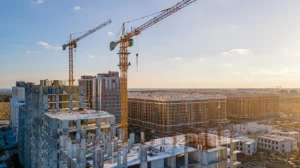Our pens have been down on a related article for all of two minutes before the subject of COVID-19-related employer liability has resurfaced, and we don’t expect that it will settle down any time soon. The matter has a risen in the context of the death of a worker who contracted COVID-19 shortly after his employer was determined to be a Tier 1 employer. Questions are now being asked about employer accountability for the safety of workers in light of COVID-19, and what employers are supposed to be doing to discharge their workplace health and safety duties over employees during the current pandemic.
On Monday 13 September 2021, Mr Martin ‘Marty’ Blight passed away in hospital after contracting COVID-19. Mr Blight worked for Serco Australia, which had not long before his passing been identified as a Tier 1 site. To remind of what a Tier 1 site is, it means that, in accordance with the guidance of Fair Work Australia, employees are required in their normal duties to interact with people with an increased risk of being infected with coronavirus.
Although it is unclear at this time what steps Serco took to ensure that its employees were vaccinated against the risk of COVID-19, Mr Blight had himself booked his first vaccination for August but on account of his age, ended up with an alternative appointment on 8 September. This means that when he tested positive for the coronavirus on 6 September 2021, this was only two days before he was due to be first vaccinated.
The ASU has called for an investigation into the death of Mr Blight by WorkSafe Victoria, highlighting how important it is that employers are held accountable for the safety of their workers, even during the COVID-19 pandemic. The ASU has cited the legal requirement that employers provide employees with a safe workplace and safe working conditions, confirming that these duties are not lesser because of the COVID-19 pandemic.
Employers certainly need to cater to the effect of the COVID-19 pandemic in the way they approach and satisfy their workplace health and safety duties and obligations. It is undoubtedly a practical challenge and fine balancing act, between discharging those duties and not unduly placing limitations on the rights and freedoms of employees.
While it may be convenient to manage workplace risk due to the pandemic by implementing a blanket vaccination policy, for example, we now know that there are very specific legal principles that must be applied to an approach of this nature. Employers must be mindful to make case by case assessments of risk to determine the most appropriate way to manage each individual set of circumstances in accordance with those legal principles. To read more about these principles, see the following related articles – Can employers mandate the COVID-19 vaccine? and Refusal to get “the jab” – How Employers should respond.
If employers do not satisfy the relevant legal standards, they may place themselves at risk of an adverse action claim or be in breach of their legal obligations, for which significant financial penalties may apply.
If you require assistance managing the risk of COVID-19 in your workplace or have questions in relation to any of the above, please don’t hesitate to contact a member of Coleman Greig’s Employment Law team, who would be more than happy to assist you today.














